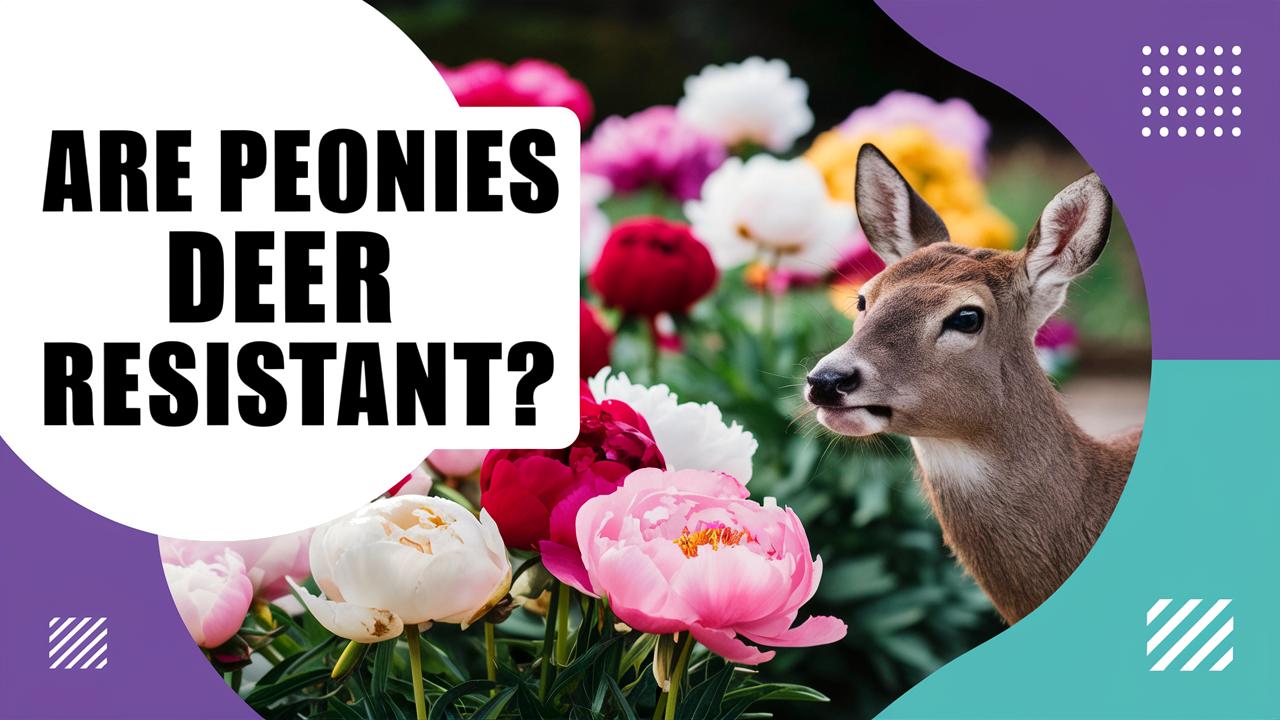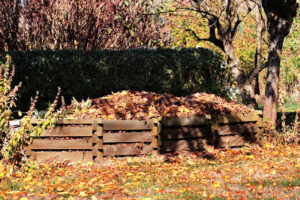If you’re an avid gardener or simply someone who appreciates a beautiful landscape, you’ve likely considered which plants to include in your garden. Among the favorites, peonies stand out for their lush blooms and sweet fragrance. However, if you’ve struggled with deer fawning over your floral bounty, you might wonder:
Are peonies deer resistant? In this post, we’ll explore the nature of peonies, their appeal to deer, and practical strategies for keeping these lovely blooms safe in your garden.
The Deer Dilemma
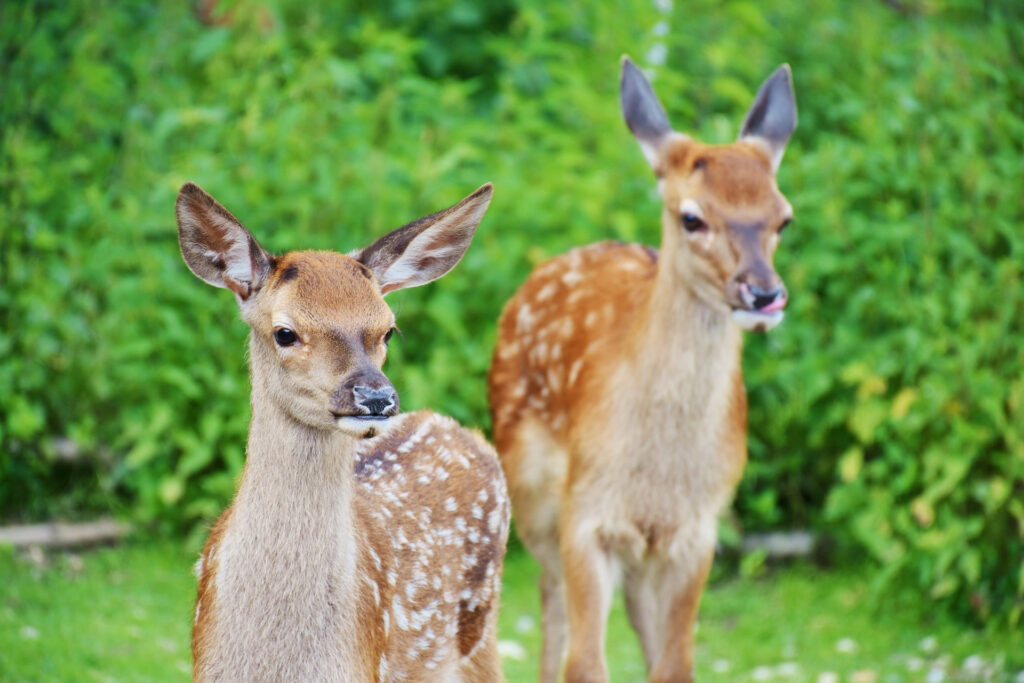
Deer (particularly white-tailed deer) are a common sight in many suburban and rural areas and can pose a significant risk to gardens. They are known to have a high tolerance for various plants, munched on with great enthusiasm. As natural browsers, deer are particularly opportunistic feeders, seeking out tender foliage and colorful blooms. This raises an important question: how do peonies fare in the eyes of these four-legged creatures?
Do Deer Like Peonies?
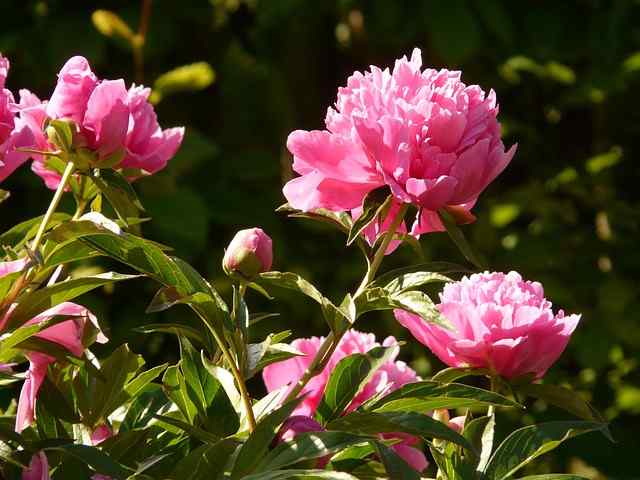
As many gardeners have observed, deer do not typically rank peonies among their preferred food sources. While individual deer may indulge in peonies, particularly when food is scarce, they generally prefer tastier options such as hostas, tulips, and many types of vegetable plants. The heavy, fragrant blooms and dense foliage found in peonies can deter deer somewhat due to both taste and texture. However, in times of hunger, deer are known to nibble on these plants.
Factors Affecting Deer Behavior
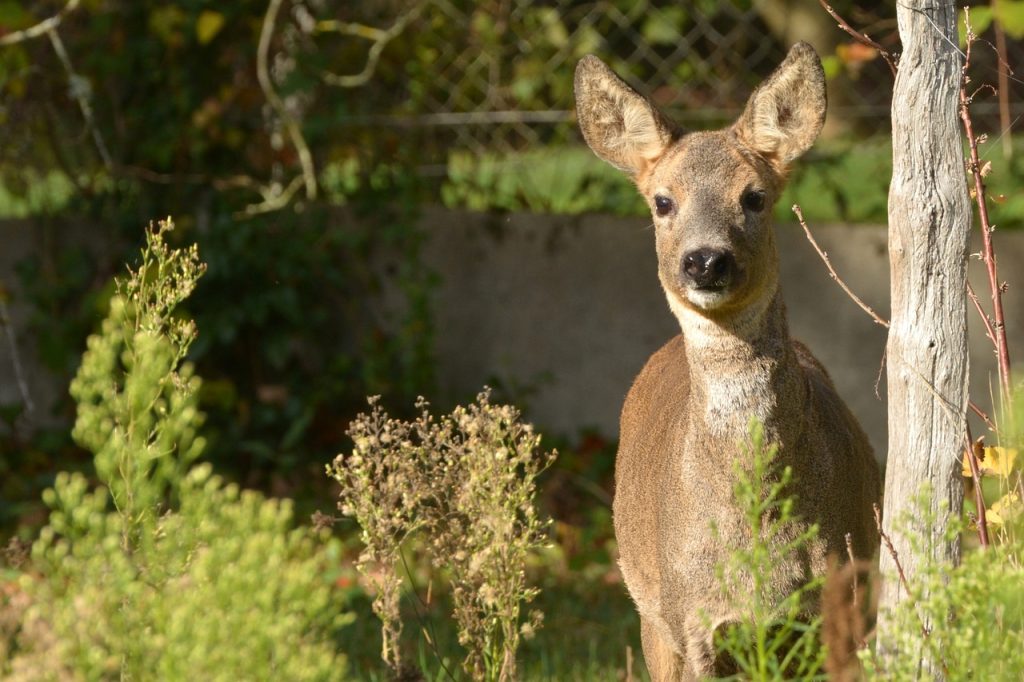
Understanding the behaviors of deer and what influences their eating habits is crucial for determining how well peonies will fare in your garden. Several key factors play a role:
1. Season and Food Scarcity
During spring and early summer, when peonies are at their peak, deer have a wide array of food choices. Many young, tender plants are available, which may lead them to avoid peonies. However, late summer and fall can prompt a shift in behavior. When other food sources dwindle, deer may become more desperate and prone to sampling less favored plants, including peonies.
2. Location and Neighborhood
The environment where you garden can also influence deer behavior. Areas densely populated with deer might see less selectivity in their diet simply due to availability. If you live in an area where deer are common, neighboring gardens might also influence their habits. High deer populations can lead to more adventurous eating patterns, raising the chances that they will pay attention to your peonies.
3. Garden Design
Your garden’s layout can either deter or attract deer. If your peonies are within a sheltered area or surrounded by other less appealing plants, they may be safer from grazing. Alternatively, open spaces or proximity to underbrush can draw deer in with more appealing options.
How to Protect Peonies from Deer
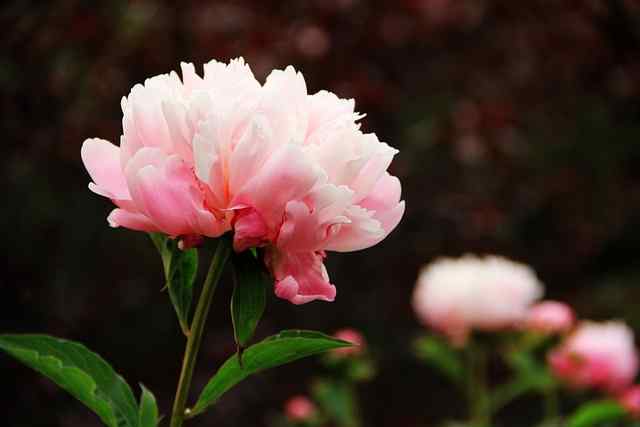
Even if peonies are generally deer resistant, it’s still wise to implement some measures to protect them, especially if you live in an area where deer activity is high.
1. Natural Deterrents
There are several effective natural deterrents you can employ to keep deer at bay:
Scent Deterrents: Deer have a strong sense of smell. Consider using human hair, strong-smelling soaps, or predator urine, which is available at garden centers. Sprinkling these around your peonies can provide a protective barrier.
Taste Aversion: Mixing water with hot pepper flakes or garlic powder and spraying it on your peonies can create an unappetizing experience for potential munchers.
2. Physical Barriers
Creating physical barriers is one of the most effective means of protecting your plants:
Fencing: Installing a fence that is at least eight feet tall can significantly reduce deer entry. If you’re concerned about aesthetics, consider a decorative fence that complements your garden.
Netting: Tree netting can deter deer without obstructing the view of your beautiful blooms. Wrap it gently around young peony plants to keep them safe.
3. Companion Planting
Interplanting with deer-resistant companion plants can also help. Consider varieties that deer generally avoid:
Lavender: The strong smell of lavender can deter deer while also attracting pollinators.
Marigolds: The pungency of marigolds can be off-putting to deer and can enhance the beauty of your peony garden.
Herbs: Plants like rosemary and sage can repel deer, providing a fragrant barrier to your peonies.
Peonies in the Ecosystem

Aside from their beauty and potential deer resistance, peonies play an essential role in the ecosystem of your garden. They contribute to biodiversity, supporting local pollinators like bees and butterflies. An understanding of how these creatures interact with each other can also provide insights into how to protect your peonies better.
Attracting Pollinators
Peonies are particularly attractive to bees, which seek out their ample nectar. Flowering plants are crucial to sustaining these pollinators, and by planting peonies, you can contribute to a thriving garden ecosystem. However, the presence of deer can disrupt this balance by devouring plants that attract beneficial insects.
Creating a Biodiverse Garden
Planting a mix of flora encourages diversity. Not only will this create a beautiful aesthetic, but it will also increase resilience against pests and diseases. The more diverse your planting, the less likely deer will find an appealing feast.
Care Tips for Peonies
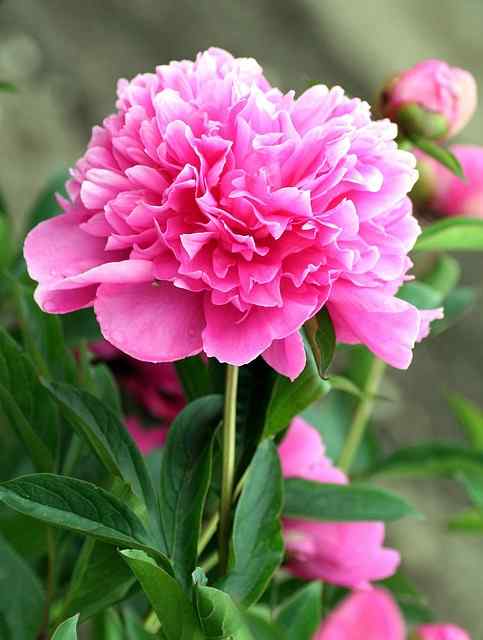
If you’re already sold on incorporating peonies into your garden, proper care is fundamental to ensure their health and vibrancy, ultimately increasing their chances of enduring the occasional nibble from hungry deer.
Water and Drainage
Peonies thrive best in well-drained soil that doesn’t hold excessive moisture. Overwatering can lead to root rot, while too little water can weaken the plant. During dry spells, be sure to provide adequate water to keep your peonies strong.
Pruning and Maintenance
After blooming, deadhead peonies to encourage further growth and prevent disease. Once the foliage starts to wilt in autumn, cut it back to the ground to prepare for winter dormancy. Healthy plants are inherently more resilient to browsing pressures, making maintenance crucial.
Fertilization
While peonies are not heavy feeders, a moderate application of fertilizer in early spring can support growth. Choose a balanced fertilizer or one low in nitrogen, as excessive nitrogen can lead to lush foliage at the expense of flowers.
Conclusion: Should You Grow Peonies?
So, are peonies deer resistant? The answer is nuanced. While they are generally not the primary food source for deer, their resilience can vary based on environmental factors and local deer populations. Thus, while you can reasonably expect your peonies to survive without constant attention, employing the right strategies will ultimately ensure their health and vibrancy in your garden.


